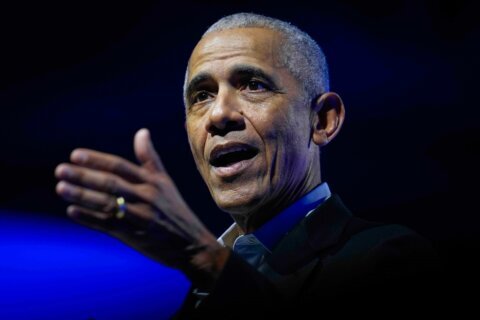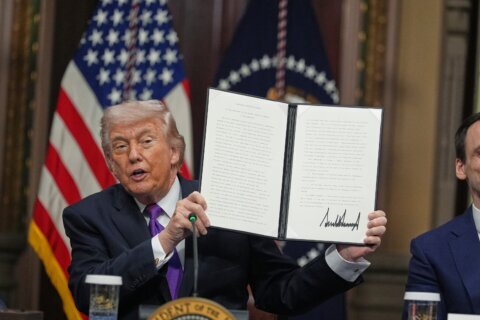This article was reprinted with permission from Virginia Mercury.
Some of Virginia’s school boards have begun banning or restricting the use of cellphones in schools. Now, the Virginia Senate is backing a proposal to explicitly empower local boards to institute such prohibitions on cellphones and other “handheld communication devices” during regular school hours.
The legislation cleared the Senate on a 36-3 vote Tuesday and will need to get the approval of the House of Delegates and Gov. Glenn Youngkin to go into effect.
“I’m not telling them to ban cellphones,” said Sen. Bill Stanley, R-Franklin, the bill’s patron, during a hearing earlier this month on the proposal. “I think we should send a clear message to our school systems that if they find it’s in their best interest to do so during the school hours, they should have every right to do so.”
In Virginia, several school divisions including those in Carroll County and the city of Richmond have restricted cellphone use during school hours.
Richmond City Schools launched a pouch pilot program that allows students to keep their cellphones in a locked pouch that is unlocked at the end of the school day.
Nationally, 76.9% of schools prohibit cellphone use during school hours, according to recent data from the National Center for Education Statistics.
Pro and con
Over the past several weeks, Virginia lawmakers spent more time debating whether they needed to create legislation than supporting a ban on the use of devices during school hours.
Supporters say the bill, which states that “each school board may develop and implement a policy to prohibit the possession or use of cell phones and other handheld communication devices during regular school hours,” could help schools reduce classroom disruptions and deter harmful behaviors like students recording school fights for online publication.
“I think we need to alert ourselves in this commonwealth on a statewide basis that this is an issue, and that we trust our school boards and we trust our schools to implement a policy that, one, makes sure that learning is paramount as what everyone wants it to be, and two, that our children are protected,” Stanley said.
However, opponents argue the law is unnecessary because boards already have the power to limit cellphone use.
Sens. Stella Pekarsky, D-Fairfax, Mamie Locke, D-Hampton, and Saddam Azlan Salim, D-Fairfax, voted against the bill on Tuesday.
Pekarsky has said that while cellphone use in schools is an important issue, “I just see this as a redundant law. It’s not needed in my opinion. It’s not a mandate. It’s just permissive.”
Supporters admit some districts have already adopted such bans but say the Dillon Rule may be confusing others. Under the Dillon Rule, a legal doctrine that governs local-state relations in Virginia, local governments are only allowed to exercise those powers explicitly granted to them by the state government.
“The reason why they didn’t think that they could do what this bill proposes to do is because of the old Dillon Rule that says that localities don’t do something unless we empower them to do so,” Stanley said. “But this bill makes it clear that we here in the commonwealth of Virginia … encourage all of our school systems to develop their own policy when it comes to regulating or prohibiting use of cell phones and handheld devices.”
Sen. Schuyler VanValkenburg, D-Richmond, who also works as a teacher, said, “I don’t have a problem throwing some redundancy in the code if it’s going to help facilitate that conversation, because it needs to be had.”
“We know our friends at the local level sometimes like to dither around,” he said. “If this helps encourage some of those conversations, I think that’s to the good.”
Federal interest
Congress is also considering whether cellphones should be restricted during school hours.
Last November, Sen. Tim Kaine, D-Virginia, introduced a bill along with Sen. Tom Cotton, R-Arkansas, to study the effects of cellphones on students in K-12 classrooms.
The legislation would also create a $25 million, five-year pilot program that would provide schools with secure containers for students to store phones during school hours.
“We’ve made a lot of progress in our recovery from the depths of the pandemic. But there’s much more work to be done to help students overcome learning loss and excel in the classroom,” Kaine said in a statement. “That includes looking into how cellphone use in schools is impacting students’ mental health and their ability to learn. This bill would help us do that, by gathering information and providing it to schools as they grapple with students’ use of cellphones in class and how to best set them up for success.”







